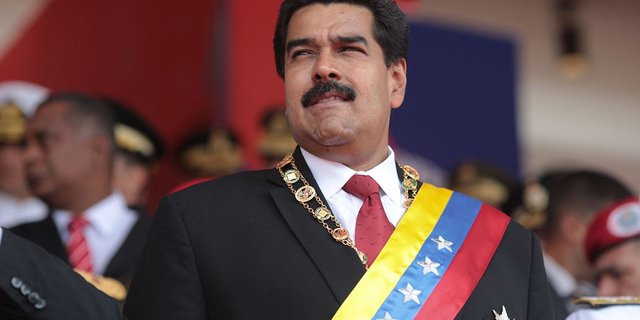
Although the Petro paper's draft paper, which CriptoNoticias has had access to, collects that more than two billion dollars, 55 percent of what was collected by the ICO, would be awarded to the "Sovereign Fund," sources close to the Administration of the Government of Maduro indicated to this newspaper that they are still considering the possibility of reserving a higher amount. This percentage is the reward that the Venezuelan state is charged for its support to the aforementioned digital currency, if the Initial Offer of Coins is successfully completed.
Sources linked to technology blockchain project companies told CriptoNoticias that since the State intends to reserve more than half of the proceeds, it might have been convenient to specify the destination of the funds in more detail. The same sources indicated that the capital assigned to the development of the platform in the white paper draft does not seem too generous.
One of the important issues that is not included in the draft is the payment methods that will be accepted in the process. However, when using an intelligent contract from Ethereum, it is foreseeable that only cryptocurrencies will be accepted. This fact will make it impossible for most of the Venezuelan population to invest in the ICO, since the knowledge required for this is still quite complex.
As stated in the aforementioned document, the rest of the funds raised will be awarded in equal parts (15%) to the Petro project, to the development of the ecosystem and to technological development. Regarding the development of the ecosystem, the text indicates that it will be a fund for "the promotion and promotion of applications within the Petro ecosystem, which will be proposed through the SUPCACVEN and selected by the Petro holders through voting through the chain of blocks. "
In the section on technological development reference is made to "funds destined to investments in technologies, infrastructures, special zones and projects that contribute to the economic progress of the country, with special emphasis on applications of block chains to improve productivity and transparency in companies and public organizations ".
As CriptoNoticias reported yesterday, the initial offer of currencies (ICO) would be carried out on the Ethereum blockchain platform using ERC-20 tokens and smart contracts. Thus, as stated in the draft, the ICO would have two parts: a private presale of 38.4 million petros, which would begin in February, and a public sale of 44 million petros, starting in March 2018. The rest, Up to 100 million Petros planned for the issue, would be retained by the Superintendence of Cryptocurrency and Related Venezuelan Activities and the VIBE (Venezuelan Initiative for Blockchain Economics).
Petro tokens would go on sale in lots and with "decreasing discounts to stimulate early investment," the draft picks up. The first batch would be 3.4 million Petro with the maximum discount of 60%, the next 5 million Petro would have progressively smaller discounts, until reaching the last batch of 24 million, without discount.
The document also highlights that Petro will be divisible by 100 million units, so the minimum unit of account will be 0.00000001 Petro. As we reported yesterday, the tokens issued in this ICO in Ethereum would later be transferred to a state-owned blockchain platform, bifurcated from the Decred cryptocurrency.
Also, the platform would not work with Proof of Work to protect your network and reach consensus, such as Bitcoin, Ethereum, Litecoin and many others, but it would use Participation or Tenure Test, in which federated nodes are responsible for validating with your signature the blocks to add to the chain. These nodes would be chosen manually, probably managed by the State or financial institutions, and would not generate rewards for mining (issuance of new currencies) or transaction fees. As stated in the draft "Transaction costs are zero, since there is no incentive for labor test mining and it is the federated nodes that insure the network".